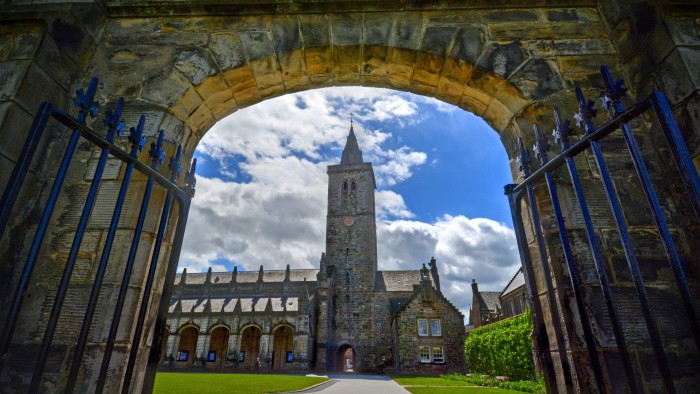Unlock the Editor’s Digest for free
Roula Khalaf, Editor of the FT, selects her favourite stories in this weekly newsletter.
A record number of Americans have applied to undergraduate courses at UK universities, according to new data, as Donald Trump’s attack on higher education shows signs of putting people off studying in the US.
Data published by the UK’s university admissions service on Thursday showed 7,930 US students applied for undergraduate courses starting this autumn, an annual rise of 13.9 per cent and the highest number since records began in 2006.
Student recruiters said the data reflected the Trump administration’s assault on the higher education sector, with elite institutions including Harvard and Columbia at the centre of a battle over federal funding and academic freedom.
Mark Bennett, vice-president of research and insight at Keystone Education Group, an international student recruitment company, said Americans had been deterred from domestic study by Trump’s threats to cut funding and revoke student visas.
“The Trump administration’s actions and rhetoric are reducing the appeal of the US, causing audiences to search elsewhere — particularly the UK,” he added.
Cara Skikne at higher education data provider Studyportals said mounting tensions over campus freedoms had pushed more US students to consider international degrees.
“Global universities are increasingly competing to attract students who feel unwelcome in the US, and at the moment, that includes many of its domestic students,” she said.
St Andrew’s University, which is home to around a tenth of Americans studying at UK institutions, said US applications were up 14 per cent, with a slight bias towards social sciences such as economics and international relations.
The data from the Universities and Colleges Admissions Service, which processes around two-thirds of international undergraduates, showed a 2.2 per annual rise in overall applicants from overseas.
Jeffery Williams, chief executive of Enroly, a platform used by half of UK universities to manage international enrolments, said recruitment was recovering from the policy instability created by the previous government.
“Despite global uncertainty, the UK is increasingly viewed as the most reliable option compared to the disruption seen in the US, Canada and Australia,” he added.
The number of US students paying deposits to secure places on UK courses is 19 per cent higher than this time last year, according to Enroly. Across all international students, deposits have risen 18 per cent for undergraduate courses and 30 per cent for postgraduate study.
But official figures for study visa applications suggest recruitment is still below historic highs, underlining the university regulator’s warnings in March that the sector’s financial recovery relies on “overly ambitious” growth in student enrolments.
A cash crunch at UK universities has caused a wave of redundancies and course closures over the past year, leading a review to call for “ambitious reform” of the sector’s funding and regulation.
The government has agreed to increase domestic tuition fees in England for the first time since 2017 and set out plans to introduce a levy on international fee income earlier this year. Further higher education reform is expected in an upcoming white paper on skills.





